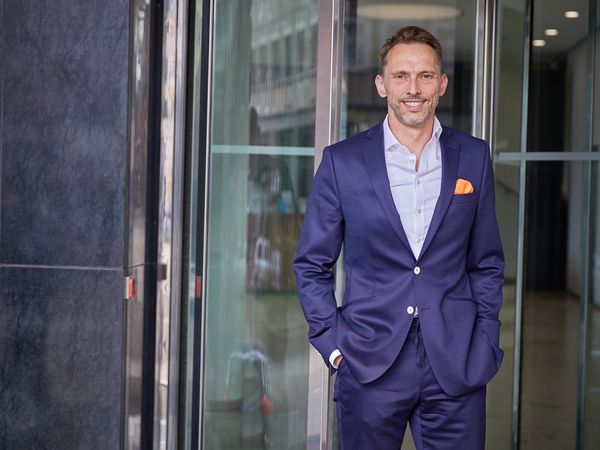From hotspot of the start-up scene to traditional commercial and industrial city, international hub, innovative media metropolis and leading logistics location: Cologne and its surrounding region have developed into one of Europe's most important economic centres and a hidden champion of the start-up scene. The newly founded KölnBusiness economic development agency (KBW) supports the local economy as well as investors and start-ups.
In this interview, Dr Manfred Janssen, Managing Director of KölnBusiness, explains how Cologne as a business location enables start-ups to grow and survive...
Dr Janssen, you have been Managing Director of KölnBusiness Wirtschaftsförderung, or KölnBusiness for short, for a year. In an interview, you describe your task of reorganising economic development in Cologne as the ‘coolest project going on in Germany’. Why is that?
The opportunity to set up an organisation almost from scratch in a city of millions is, of course, fantastic. Streamlining an organisation to a large extent compared to the previous administrative structure, eliminating hierarchical structures, aligning itself in an agile way, introducing the most modern IT and working methods – that's definitely a cool project!
What will be your future priorities? Can you name your first three measures?
Of course, in addition to continuing established services, there will also be a lot of new things! For example, the corporate service will in future also take care of the retail target group, while in the area of marketing and communication, we will largely reposition ourselves and become very digital. We are also building a completely new innovation pillar, our
business development. The aim here is to promote the climate for innovation in Cologne. In particular, the focus is on the triad of our leading markets, the start-up ecosystem and the universities.
Why is Cologne so attractive as a location for start-ups?
One of the major advantages of Cologne and the Rhineland as a business location is the close proximity to customers and potential applications. In the Cologne area, we have a catchment area of 17 million people and a strong economic core! This is a very important factor that enables the growth and survival of start-ups in the first place. What's more, Cologne is particularly popular with young people and skilled workers.
How does KölnBusiness provide concrete support for start-ups?
Firstly, through our StarterCenter, a start-up institution certified by the state of North Rhine-Westphalia. Here, we provide advice in cooperation and division of labour with the Chamber of Crafts and the Cologne Chamber of Commerce and Industry. Secondly, through our own Startup Unit. Here, we look specifically at how we can improve framework conditions from the municipal side, simplify administrative procedures and network founders with partners and investors. At the same time, the Startup Unit is consistently tackling internationalisation. Cologne has an extraordinary network of partner cities! We specifically promote cooperation in the start-up sector, with Tel Aviv, a well-known hotspot for founders, being a frequently cited example.
How do you assess the importance of universities in start-up projects?
The universities are both a decisive driver of the start-up scene and of the local innovation climate as a whole. In addition to the start-up infrastructure in our company, a whole range of initiatives are working locally, including the Exzellenz Start-up Center.NRW, the hochschulgründernetz cologne e.V. and various other public-private associations. They are also increasingly successful in generating funding. We will work closely with local partners to expand our joint innovative strength.
How do you encourage companies to digitise more?
As a neutral player, we create platforms for an exchange between universities, companies and start-ups. We also add an international perspective to this. In Germany, the focus is still very often on improving details or an existing product. In the US and China, established companies are increasingly drawing on external impulses and ideas from start-ups. This is absolutely effective if you really want to bring completely new ideas into your company. In ‘our’ innovation pillar, the focus is therefore on precisely this triad of “industry, university and start-ups”.
